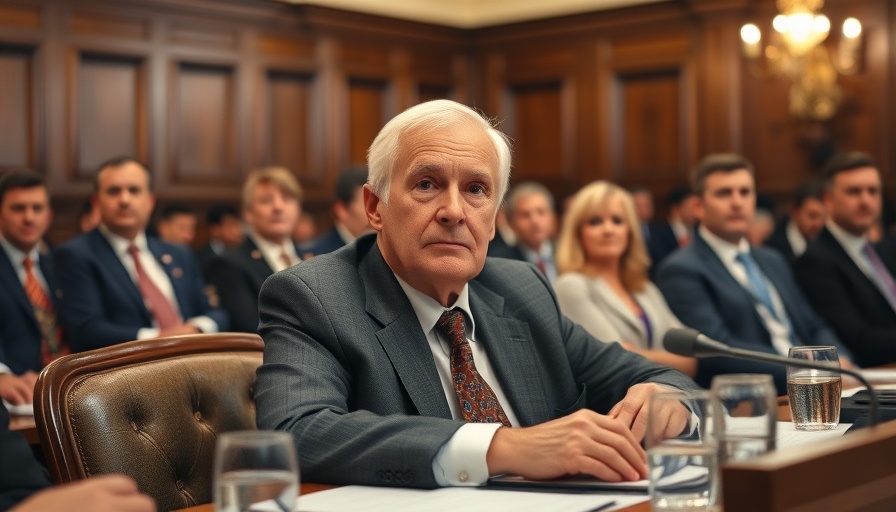
Dr. Oz's Controversial Stance on Health and Patriotism
In a recent statement, Dr. Mehmet Oz, the head of Medicare and Medicaid, stirred controversy by claiming that it is the "patriotic duty" of Americans to stay healthy. During an interview on Fox News, he expressed his belief that individuals should take proactive steps toward their own wellness. This comment, while likely intended to motivate, has sparked significant backlash from various sectors of society, highlighting deep-rooted issues within the healthcare system.
Understanding the Responses: Health and Systemic Barriers
Critics were quick to point out that such assertions ignore the many systemic barriers to health that individuals face. Access to healthy foods, affordable healthcare, and information about nutrition are not evenly distributed across socioeconomic lines. For many, chronic illnesses such as diabetes or heart disease cannot simply be blamed on personal choices. Those affected by such conditions often face considerable challenges that extend beyond their control.
Health Determinants: What Influences Well-being?
Better health outcomes are heavily influenced by several factors, known as the social determinants of health, including education, income, community safety, and access to health services. A user on social media encapsulated this sentiment, noting, "if you have some sort of illness, which you do not control, such as Cancer or congenital diseases, you are not a patriot?" This highlights an essential point: health is not always a matter of personal responsibility but also of privilege and access. To promote wellness effectively, solutions must center on both personal and systemic frameworks.
Debunking Misconceptions: Health as Personal Responsibility
While taking personal responsibility for health is certainly beneficial—incorporating fitness routines and nutrition into daily life—oversimplifying the equation can lead to stigmatization. Many woke to Dr. Oz's remark, emphasizing that calling health a patriotic duty only serves to shift blame. Rather than fostering a supportive environment for wellness, such statements can alienate those who struggle with significant barriers to maintaining a healthy lifestyle.
A Call for Comprehensive Health Care Solutions
The debate surrounding Dr. Oz's statement emerges amidst ongoing discussions about healthcare reform and accessibility. Advocates are increasingly calling for comprehensive solutions, such as universal healthcare, that ensure every American can fulfill their right to health. Such solutions could help create an environment where a healthy lifestyle isn't viewed as an act of patriotism but rather as a fundamental right.
Inspiring Change: The Role of Community in Health
Ultimately, fostering a healthier generation relies on community support and awareness. Engage in discussions about health accessibility. Participate in local initiatives geared towards promoting healthier lifestyles, from community gardens to fitness programs. It's vital to build resources not just for those who can afford them but for everyone. Integrating mental health support and wellness programs can significantly impact community health outcomes, paving the way for a healthier tomorrow.
Conclusion: It's Time for Unity in Wellness
As society navigates the complexities of health and responsibility, few things are clearer than the need for unity in wellness. If we truly wish to uphold the health of our nation, this obligation must expand to include advocacy for more accessible health resources, empathy, and understanding. Let’s move beyond blame and work together to create an inclusive framework where everyone can thrive.
 Add Row
Add Row  Add
Add 




Write A Comment